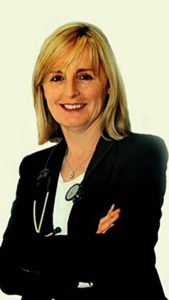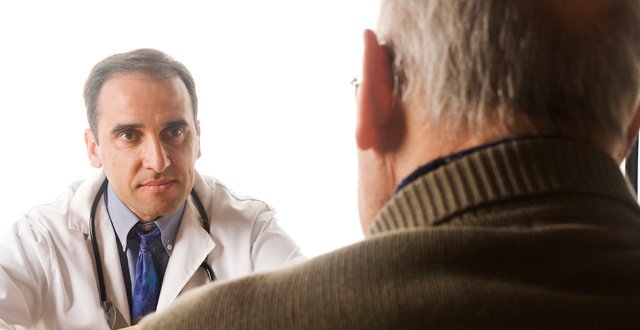HSE data shows an increasing number of patients are losing their medical cards in favour of GP/doctor visit cards (DVCs). Unlike medical cards, DVCs do not provide free access to medications and allied healthcare professional services. Niamh Cahill investigates
According to data from the HSE National Service Plan 2019, approximately 1.573 million people were covered by a medical card on 31 December 2018.
The final medical card-holder figure for the end of the year was more than that projected by the HSE, which had estimated usage at 1.564 million.
This would seem to suggest that demand for medical cards remains high, despite HSE projections.
HSE forecasts for 2019 project a further reduction in medical cards. Expected activity in 2019 is estimated at 1.541 million, representing an approximate 30,000 reduction in medical card-holders in 12 months.
According to data up to May, the number of medical card-holders nationally was 1.564 million.
Between 2004 and 2012, the number of medical card-holders in Ireland grew dramatically, rising from 1.148 million to 1.853 million, an increase of approximately 700,000.
In 2013, the numbers fell marginally to 1.849 million. By 2015, medical card-holder numbers had dropped to 1.734 million and in 2017, the number of card-holders was 1.6 million.
The reasons for the reduction in card-holders are unclear. Some, including the HSE, assert that the fall is linked to the drop in unemployment figures in Ireland in recent years, resulting in reduced medical card eligibility.
The medical card assessment process is based primarily on a financial assessment and not medical need.
Medical card-holders are entitled not only to free GP visits, but also to medication and several allied health professional and public health services, the costs of which are covered by the State.
Eligibility under the medical card scheme is administered by the Primary Care Reimbursement Service (PCRS). The HSE National Service Plan 2019 confirms that the PCRS is facing serious “financial challenges”.
“The PCRS continues to face significant financial challenges and increased demand for services,” the report states.
Many doctors believe that the HSE is actively targeting a reduction in medical card-holders in order to save money as HSE finances come under increasing pressure.
GPs report that medical card-holders are still experiencing difficulties, with the HSE withdrawing cover before the expiry date on cards in circumstances where they allege the card-holder has failed to respond to correspondence issued by the HSE.
Many card-holders dispute this, however, and have argued that they have not received any such correspondence.
Lengthy processing times for medical card applications have also been reported by patients. Yet, according to HSE data, 99 per cent of completed medical card applications were processed within 15 days in 2018.
Doctor visit cards
Some 503,000 people were covered by GP visit cards/doctor visit cards (DVCs) in 2018. This is projected to rise to 528,000 in 2019. In May, the number of DVCs in use was 511,000.
DVCs cover free GP care at the point of delivery but do not cover patient medication costs or provide access to other services, such as occupational therapy, physiotherapy and speech and language therapy.
In April, changes announced in Budget 2019 to increase the DVC eligibility threshold by 10 per cent came into effect. The change was estimated to result in an increase of 100,000 DVCs.
The Government plans to introduce DVCs for the six-to-12 age group in the future, which will also result in an increase in eligibility.
Indeed, the extension of free GP care is expected to feature prominently in Fine Gael’s next general election campaign.
Tramore GP Dr Austin Byrne believes DVCs are a “cynical vote-buyer”.
He said DVCs are favoured by the HSE on cost grounds. DVC numbers have jumped significantly in recent years, while the number of medical card-holders has fallen, he pointed out.
The annual cost of a DVC is around €240 when all costs are factored in (subsidy claims and out-of-hours costs), while a single medical card costs about €2,000 per annum, according to Dr Byrne.
“The State is currently in a position where all health services and access are rationed except for GP services, which it appears are easy political currency,” Dr Byrne told the Medical Independent (MI).
Politics
The political imperative, he maintained, seems to be the extension of free GP care to the broadest possible population for the lowest cost, without any consideration of what this means for healthcare.
“It is removing full medical card access to those on the watershed of eligibility as funds divert towards larger pools of DVCs,” according to Dr Byrne.
“Patients with genuine health needs are therefore forced to largely self-fund medications and non-GP services.
“GP services are increasingly stretched by higher numbers of cards as DVC holders show increased attendance rates. The viability of general practice is eroded, given the low funding level per card. There is, it appears, a cynical awareness that the State cannot afford medical card numbers as it cannot provide free at the point-of-care access to primary care teams, other than GP services.”
Dr Byrne also believes that the current extension of care on age grounds is at odds with population healthcare and Sláintecare, and is “purely vote-buying”.
Saving money
Tipperary GP Dr Lucia Gannon is similarly concerned about the projected reduction in medical cardholders this year.

She believes that if the HSE is projecting a decrease in card-holders of around 30,000, “it is definitely to save money”.
The rise in DVCs is resulting in patients coming to their GP more often, which is putting pressure on the system, she said.
“Patients don’t always comply with advice given. For example, if we tell them they need a scan…but they just come back to us in the end,” Dr Gannon told MI.
“There is a squeezed middle-income group that do not have access to healthcare in certain circumstances because they can’t afford it.
“Some of these people have doctor visit cards, but these cards do not provide access to other healthcare services. But politically, it still looks good to have a ‘ticket’ into the GP service.
“Handing out doctor visits cards is a bit like trying to solve the homeless crisis with an umbrella. It doesn’t ultimately solve the problem, get to the root of the problem or provide complete healthcare to people.”
As the DVC is the only ‘free’ part of the healthcare system, Dr Gannon believes this results in the card being devalued.
Dublin GP Dr Maitiú Ó Tuathail stated there is a “concerted effort” by the HSE to reduce the number of medical card-holders and has called for a system that provides a “medical card or nothing”.

“I see patients losing their medical cards and instead getting doctor visit cards, which give you access to nothing… They are bringing in doctor visit cards by stealth and controlling and restricting access to medical cards.”
Many patients are unaware they have lost their medical card and instead have a DVC until they require referral to other healthcare services, Dr Ó Tuathail said.
HSE
According to a HSE statement issued to MI, to qualify for a medical card, weekly income must be below a certain limit for a particular family size.
Cash income, savings, investments and property (except the family home) are taken into account, while allowances are made for reasonable expenses in relation to rent/mortgage, childcare and travel-to-work expenses.
According to the statement, in cases where a medical report has been submitted to support an application, the financial burden on the family is assessed by a team of medical officers.
“Applicants whose weekly incomes are derived solely from social welfare or HSE allowances/payments, which are in excess of the financial guidelines, are eligible for a medical card. However, with employment rates increasing, it is expected that the numbers eligible for a medical card will fall. Nevertheless, because the cost of housing is increasing, this fall may not be as large as predicted.
“If someone loses eligibility for a medical card, they may still qualify for a GP visit card, as the income thresholds are 50 per cent higher than for medical cards and since 1 April 2019, the threshold for [the] GP visit card was raised a further 10 per cent, as provided for in Budget 2019.”
In terms of the cost of a medical card to the State, the HSE stated this depends on age, gender and usage.
The annual statistical reports on the PCRS website give an overview of the costs involved and make it possible to come up with an average figure, but the statement claims that it can be misleading to deduce an average if the number of cards is falling, as the cost to the State should also fall.
“For example, the GP capitation rate for persons aged 70 years and over in the community is €271.62, whereas the capitation for a male aged 16-to-64 is €55.26 (the cost of prescription drugs for medical card-holders also varies by age). Those entering the workforce, and possibly losing eligibility, are generally in the 16-to-64 age category, whereas the number of people over 70, who automatically are entitled to a GP visit card and for whom the means test for a medical card are less onerous, are increasing year-on-year.”
Meanwhile, the PCRS issues emergency cards for a six-month period for patients who are seriously ill and in urgent need of medical care.
The number of emergency cards varies monthly, but is on a downward trend.
PCRS data shows that in December 2017, there were 1,279 emergency medical cards compared to 748 in Decembers 2018. In April, there were 802 in use.













Leave a Reply
You must be logged in to post a comment.